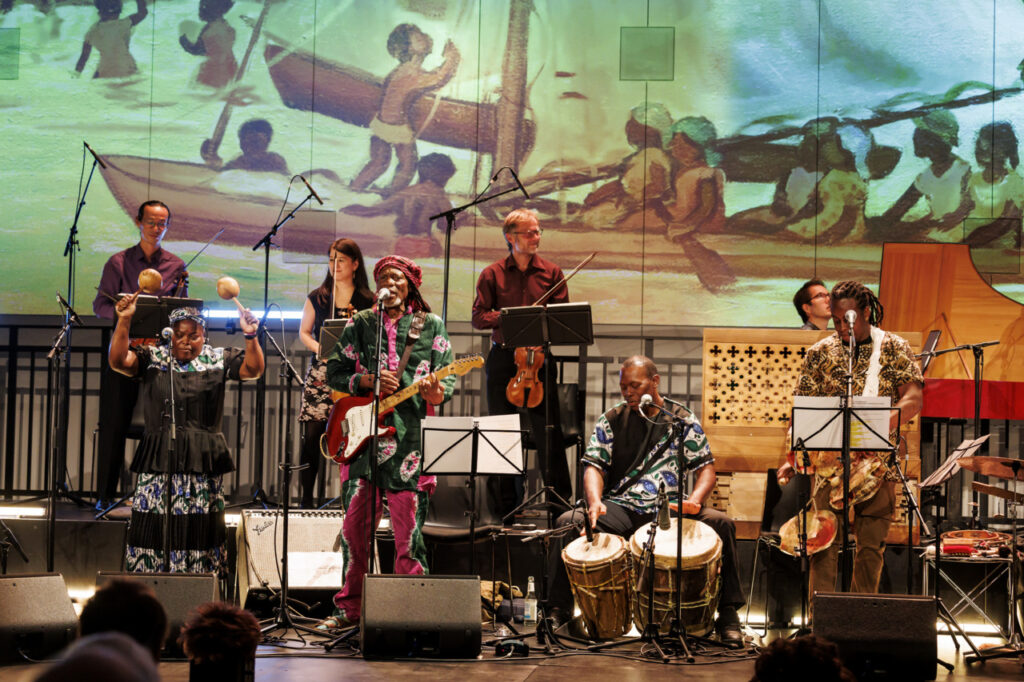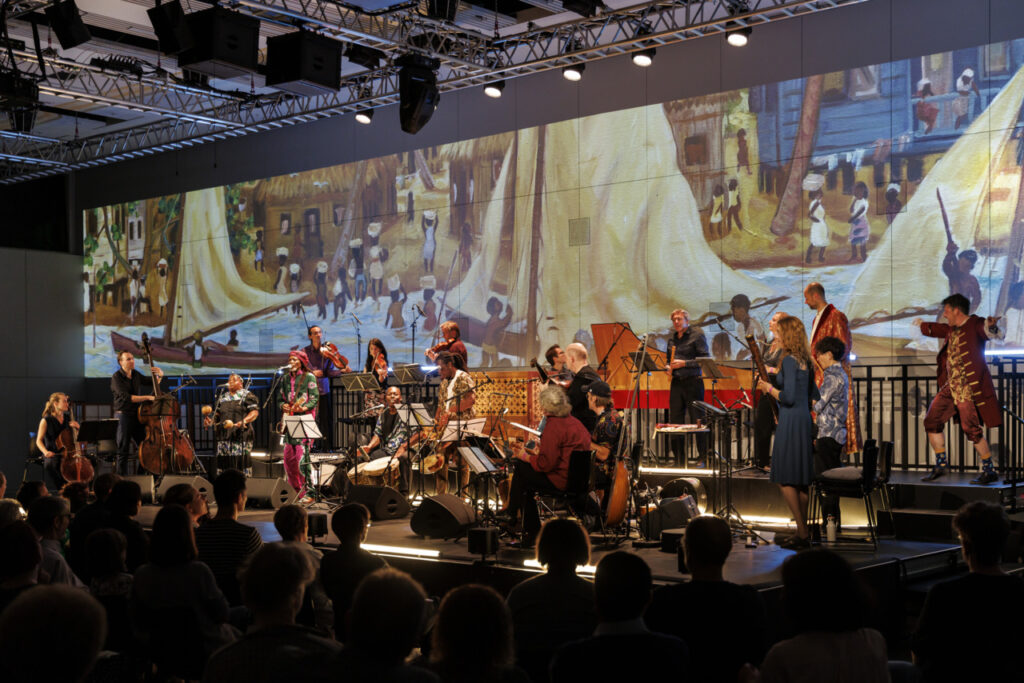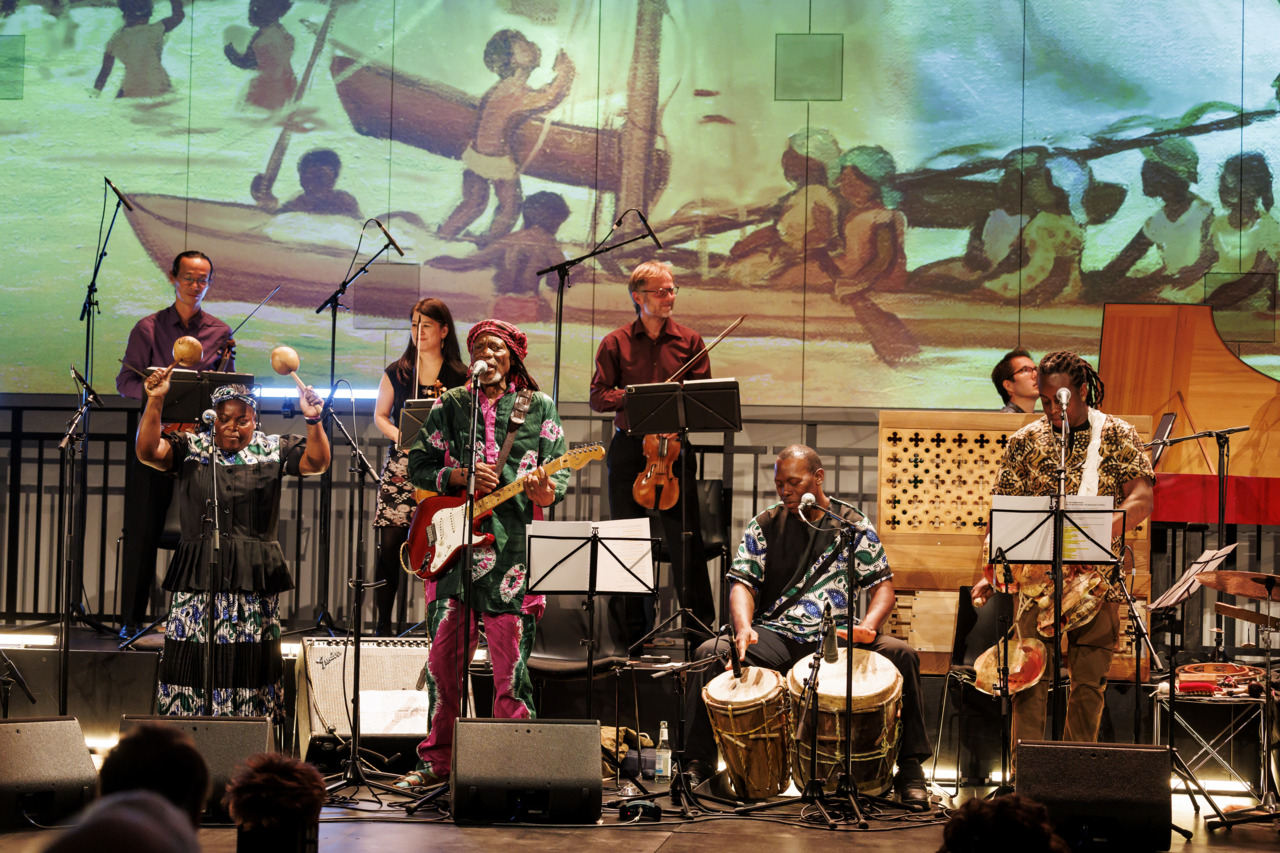How to decolonize the Beggar’s Opera
The Lauten compagney BERLIN, one of the most renowned instrumental ensembles for historical performance practice, is celebrating its 40th anniversary, and their calendar is therefore busier than usual this year.
On September 13th there was now the fourth program of this ethno-musical world tour. It was entitled Punta versus Polly – How to decolonize the Beggar’s Opera and this time concerned Caribbean Punta music.
„The Punta is the most famous traditional dance of the Garifuna, a circular dance with binary rhythm that is very similar to the West African Mande dance. In 1978, Pen Cayetano invented the Punta Rock, reinterpreting the historical legacy with his Turtle Shell Band and thus the „His songs express the political, social and economic problems and interests of the Garífuna.“
As a Western counterpoint to the music of the Garifuna, the lautten compagney chose the so-called Ballad Opera Polly by Johann Christoph Pepusch and John Gay, which was created in 1729 as a continuation of The Beggar’s Opera, set in an imagined Caribbean, and was premiered only in 1777 due to censorship reasons. The dramaturgical arrangement of this „mixing“ (see above) was done by Christian Filips. (director). Through a common thread – with the countertenor Georg Bochow, as Polly’s librettist John Gay (1685-1732), attempting to lecture on his own piece – all the intellectual and musical highs and lows of the dubious work were marked and countered; especially the colonialist content was emphasized in this regard. Countertenor Bochow was able to perform the Ballad of Pirate Jenny, alternating between chest and head voice.
And again, plenty of Punta Rock as well as Garifuna music (with percussion in the form of bound turtle shells, two differently sized Garifuna drums, and a pair of maracas), Cayetano sang and played the electric guitar – and musicians from the Lautten Compagney accompanied musically on their own instruments.

Soprano Aminata Toscana (only 20!) played and sang Polly, Tenor Christoph Pfaller electrified as Karibe Cawwakee; Additionally, he positioned himself, in terms of acting, significantly in the foreground. The young baritone Raphael Riebesell (as Macheath) stood out with his beautiful and very pleasant timbre.
The video projections in the background (Adrian Terzic) displayed paintings by Pen Cayatano, textile art by Ingrid Cayetano, and satirical graphics from the 18th century.
Financial support was provided from Germany by the Federal Government Commissioner for Culture and in Belize by NICH and BTB.
Further background info:


